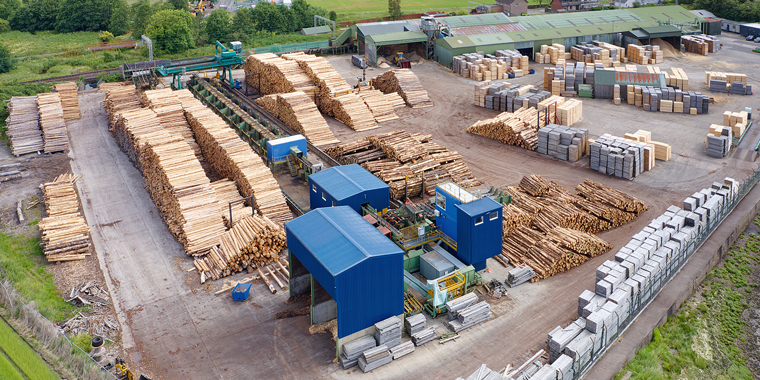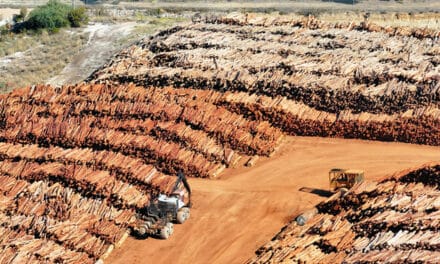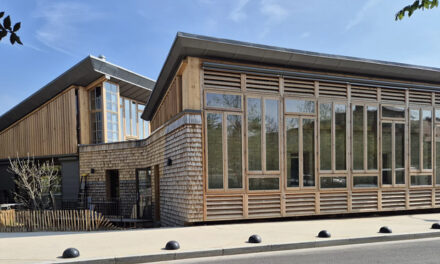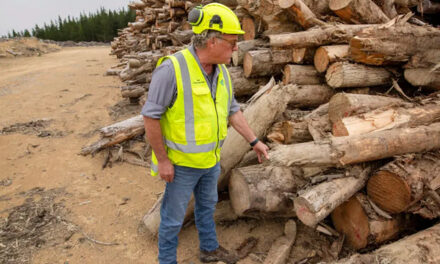A blow to the Nelson-Tasman region
The planned closure of Eves Valley Sawmill will deeply impact the local communities.
The timber industry in New Zealand is facing mounting pressures, with Carter Holt Harvey announcing plans to close its Eves Valley Sawmill near Nelson. This move could result in the loss of 142 jobs, sending shockwaves through the local economy and communities. The facility, located about 21 kilometres from Nelson and operational since the 1980s, processes around 250,000 tonnes of timber annually, much of it sourced from nearby forests. Company management cited the need to consolidate operations at its Kawerau plant in the Bay of Plenty as the primary reason, aiming to enhance efficiency amid challenging market conditions.
Tasman Mayor, Tim King, expressed profound disappointment over the proposal, describing it as a significant shock despite longstanding rumours about the mill’s future. Having lived adjacent to the site for most of his life, King highlighted its integral role in the region’s economy over the past four decades. “The implications are very significant for us as a region,” he stated, emphasising the impact on the 142 affected workers, many of whom have dedicated years to the mill. He noted a pattern of rationalisation in the sawmilling sector nationwide, driven by investments in technology and efficiency elsewhere. King pointed out that Carter Holt Harvey believes it can meet the country’s sawn timber demands entirely from the North Island, rendering the Eves Valley operation redundant.
The closure’s ripple effects would extend to nearby towns such as Brightwater, Wakefield, and Richmond. Employees seeking new work opportunities could strain local job markets, while reduced wages might hurt supporting businesses. The forestry sector, a cornerstone of the Tasman region, would face disruptions as logs previously processed locally are redirected elsewhere. King acknowledged the proposal’s rationale and expressed doubt that interventions could reverse the decision.
Nelson Mayor Nick Smith echoed these concerns, revealing that consultations with company management left him pessimistic about saving the jobs. After inquiring whether local council or government actions could alter the outcome, Smith reported a firm response indicating consolidation was the driving force. He briefed Regional Development Minister Shane Jones and South Island Minister James Meager on the issue. Both ministers voiced disappointment but committed to supporting affected workers through agencies like the Ministry of Social Development. Meager highlighted the unfortunate timing, given the abundance of windfall timber from recent flood emergencies—estimated at 3500 to 6000 hectares—that requires processing. He suggested other companies might step in to handle this resource, and he plans to explore regional development options with Jones.
Dismissing suggestions of a lack of confidence in the South Island, Meager noted positive growth trends in southern regions over recent months.
Opposition voices have been vocal in their criticism. Labour MP Damien O’Connor labelled the potential closure a major setback, attributing it partly to the government’s pause on large construction projects, which he claims has reduced timber demand. He pointed to broader job losses, including 18,000 in construction and over 11,000 in manufacturing since December 2023, warning that such trends could drive Kiwis abroad for better prospects. Nelson MP Rachel Boyack added that the region needs expanded onshore wood processing to support housing and infrastructure, not reductions.
Union representatives from E tū described workers as devastated, with many having served at the mill since its inception. Team leader Finn O’Dwyer-Cunliffe stressed the proposal’s detrimental effects on families and the community, pledging to advocate for members during consultations. Smith shared anecdotes from speaking with affected staff, some of whom fear meeting mortgage repayments after recent home purchases.
In the wider timber industry context, challenges abound. Timber Industry Federation executive director Jeff Ilott explained that building consents have plummeted from 51,000 in 2022 to 34,000 in the year to June, exacerbating low demand. Coupled with rising costs for electricity, compliance, and insurance, plus international instability from conflicts and tariffs, sawmills are under severe strain. Ilott described the situation as one of “batten down the hatches,” noting that while small-town mills are vital employers, family-owned operations endure through generations. Despite the gloom, he hopes for recovery.
The proposal remains under consultation until 1 September, with a final decision expected on 4 September. As the Nelson-Tasman region braces for potential upheaval, stakeholders call for collaborative solutions to mitigate the fallout and bolster local resilience.











